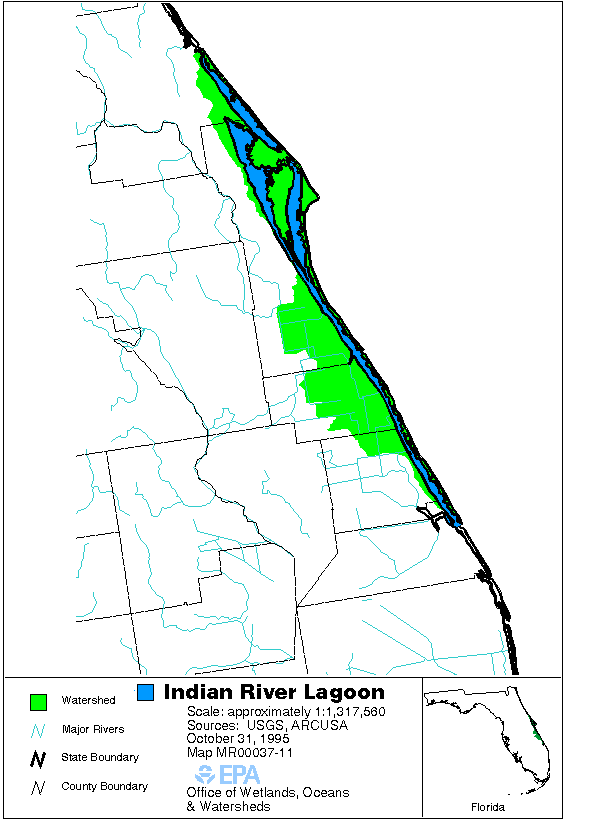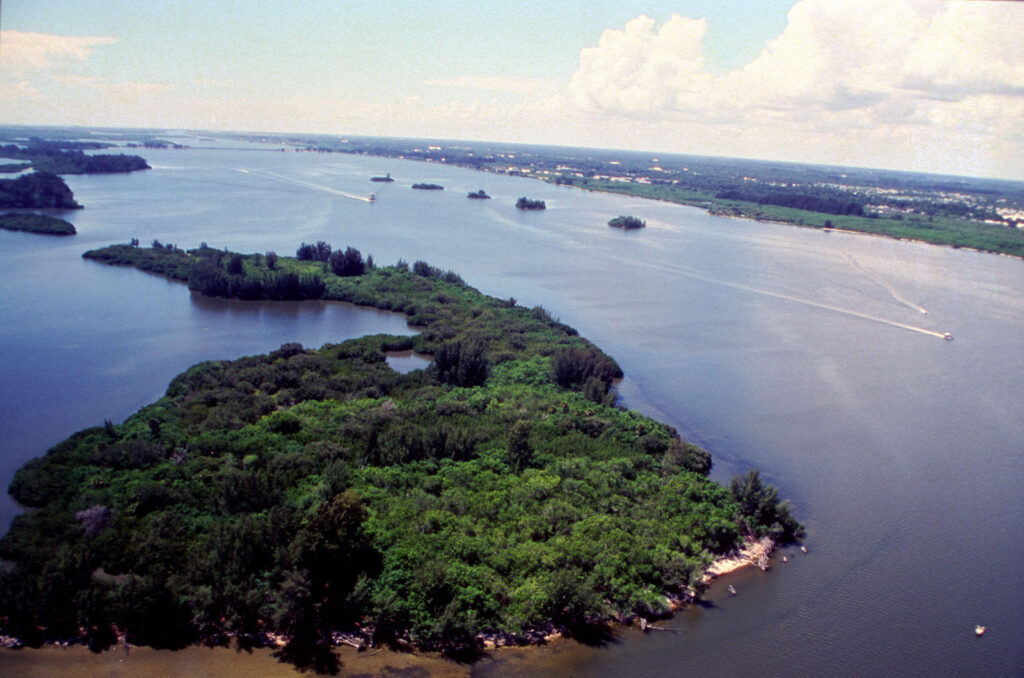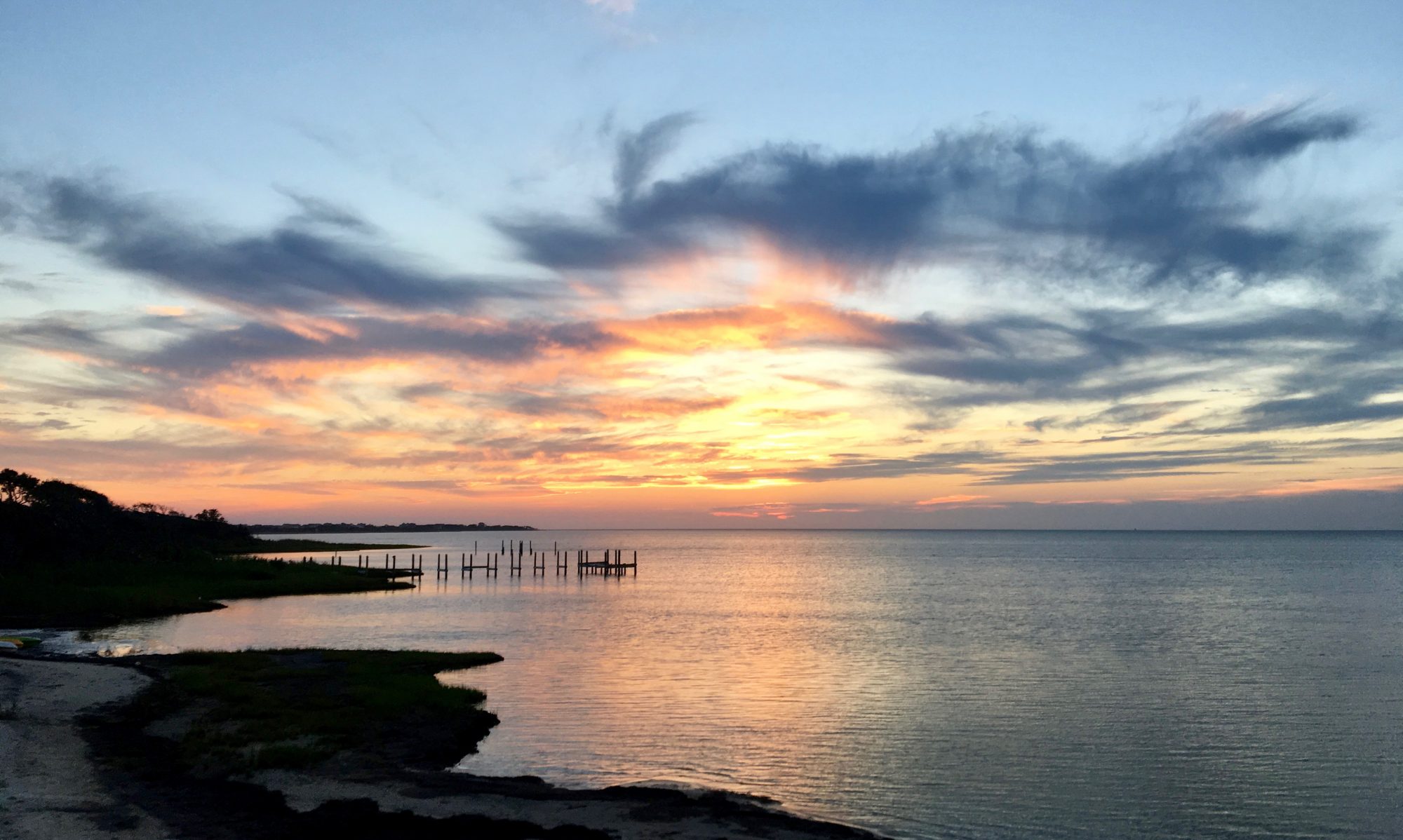By Ellis Kalaidjian
This blog post is the first of a new monthly series, tentatively titled “Coastal News from the Field,” which highlights new coastal management/conservation-themed research that makes us tick. We are excited about this new development for the blog and encourage our readers to reach out to admin@thecoastalsociety.org with any research or topics they would like to see featured in this series.
This month, we highlight a study from a research team in Florida, titled “Adaptation Actions to Reduce Impairment of Indian River Lagoon Water Quality Caused by Climate Change, Florida, USA,” as published in February 2021 in the Journal of Coastal Management. The motivation for this work comes from the increasing vulnerability of estuaries to climate change impacts of salt-water intrusion from rising sea levels, hydrological regime changes, water temperature increases, and so forth. The Indian River Lagoon (IRL) was designated as an Estuary of National Significance by the Environmental Protection Agency (EPA) in 1990 and, more recently, a Climate Ready Estuary in 2008, following a collaboration between the EPA and National Estuary Program in the form of the Climate Ready Estuaries Program.


The core objective of this research was to assess the vulnerability of the IRL’s management program to climate change and prescribe adaptive actions designed to improve the program’s efficacy and protect the estuary from further climate-change-induced impairment. The research team first compiled and reviewed a list of the program goals (e.g., “water quality” or “healthy communities”) within the IRL’s Comprehensive Conservation and Management Plan (CCMP) that were most likely at risk from climate change and the associated climate stressors jeopardizing those goals. The team then weighted each risk in a matrix based on parameters of consequence, likelihood, spatial scale, and timeline. A total of 472 risks were identified. Of those, 50% were associated with impacts to impaired waters, wastewater, and surface water. Nearly all (97%) of these risks were induced by three prevalent climate change stressors of altered precipitation regimes, increasing storminess, and sea-level rise.
From here, the research team was able to identify nine adaptation actions to mitigate water quality impairment caused by climate change. Each action focused on mitigating the major sources of elevated pollutant loadings anticipated to accompany climate change, including wastewater treatment plants, on-site treatment and disposal systems, and surface water storage and conveyance infrastructure; for example, one action was to create a GIS-based inventory of vulnerable infrastructure supporting the three systems. In addition, the team devised a five-step action plan that could be used to achieve each of the nine adaptation actions and proposed an integrated management regime based on the existing symbiosis between the state of Florida and the IRL National Estuary Program.
In the face of the emerging circumstances presented by climate change, it is paramount that we continually review and adapt the programs that we have instituted to protect our coastal resources. The research highlighted in this article showcases how adaptive management—a concept based in theory—can be operationalized to satisfy long-term conservation agendas. The study also demonstrates how vulnerability assessments can be used to prioritize and continually monitor program action areas that harmonize mutual interests of a diverse stakeholder network. Most importantly, the deliverables of this applied research have direct utility for future policymaking, community engagement initiatives, program financing, and other efforts that may otherwise have been hindered without recognition of the future management challenges posed by climate change.
Citation:
Parkinson, R. W., Seidel, V., Henderson, C., & De Freese, D. (2021). Adaptation Actions to Reduce Impairment of Indian River Lagoon Water Quality Caused by Climate Change, Florida, USA. Coastal Management, 49(2), 215-232.

